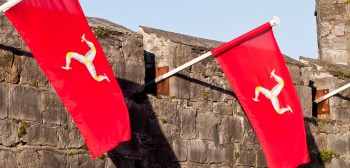The Isle of Man is small, with a population of just over 83,000, but in terms of Public Service Broadcasting, it’s currently embroiled in a big debate about the future funding of its public broadcaster, Manx Radio. As the global economic recession bites, it is a debate familiar to many CBA members.
Last Sunday I took part in a live Manx Radio programme and had an opportunity to consider the essence of what it means to be a public broadcaster in a small country. Isle of Man residents have ready access to broadcast media from the BBC in the nearby UK. So how does Manx Radio provide a distinct service for its audience? It broadcasts 19 hours a day, 365 days a year, providing a community that doesn’t have a daily newspaper with up-to-the-minute local news and views. And crucially, Manx Radio is well – peculiarly Manx! But that’s the point – it’s both relevant and local.
The station is a shared public media space that provides a central focus and ‘identity’ for the community. Speech content is more expensive to produce than music radio, but then it delivers so much more than entertainment. A public broadcaster is there to provide essential, trustworthy information and debate, not to make money.
As I waited to go on air, listeners were asked to contribute their opinions on the island’s current ‘Open Skies’ policy and the ‘Sunday chemists rota’ was read. The station still broadcasts obituaries, and like all successful public broadcasters in today’s media environment, it has an excellent website and social media linked to its broadcast output. In short, it provides a touchstone for ‘being Manx’. 
Nothing to hide, able to shine
Democracy is also central to the Manx way of life. The island’s parliament, The Tynwald, is the world’s longest continuous parliament, and has been in existence for more than 1,000 years. The radio station receives a subvention from the government, and it also raises funds via advertising. But it is the public money that makes the difference and is the essence of providing an impartial service for its listeners.
A key role of any public broadcaster is to ensure that democratic governments are accountable to the public they serve. On occasion that means questioning the same parliamentarians who set the funding levels. But then both public broadcaster and MHKs (Members of the House of Keys) are public servants. At least, I presume that in a democracy as old as the Isle of Man’s, the members have had plenty of time to get used to the idea of public accountability, and as a contributor to the programme said: “It is good to be held to account, and those with nothing to hide usually shine”.
Sally-Ann Wilson, Secretary-General of the CBA
Image top right: Creative Commons/Steve Babb

 WorldView
WorldView Your WorldView
Your WorldView
